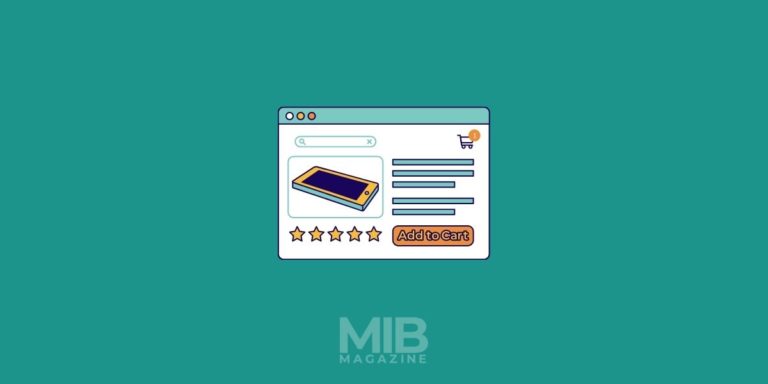How To Choose The Right Digital Tools For Your Home-Based Business

Home-based businesses are becoming more popular. The flexibility it offers people is what fuels the popularity of this trend. You can balance your family requirements and business work by owning a home-based business. Additionally, you have better personal and financial freedom. Unlike office-based setups, a home-based business has no dress code, bosses, or set work schedule. But it requires self-discipline, personal drive, and excellent time management skills.
However, running a home business can sometimes be complex, especially if you lack the right tools. You must communicate with your staff and customers and perform other management duties. With the appropriate digital tools, you can lower operational costs, make processes more consistent, secure, and effective, and position your company for success in the future. With that in mind, here’s how to choose the right tools for your home-based business:

- Go For Tools With E-Signature Features
Business involves signing various documents, including sales contracts, hiring contracts, invoices, etc. Since you’re working from home, you’d want to streamline your workflow by choosing a tool with electronic signature features, like a signature generator. This tool allows you and your customers to quickly append signatures to contract agreement forms and orders without additional printing, scanning, and transfer of files. It offers more convenience to your clients and staff, saves time, and makes every aspect of your business more effective.
Other benefits your business can gain from E-signature include:
- Reduced costs: E-signature solutions eliminate the costs related to human errors or documents missing valuable information. Documents with such mistakes can cost more than those submitted correctly at first.
- Augmented privacy and security: Wet signatures are vulnerable to privacy breaches, especially in a multiple-signature solution where you must shuttle contracts from one signer to another. However, in e-signature, your documents are stored in a single digital location where you can trace any alterations throughout the signing process. Additionally, you can add restrictions where signers can only access a particular document in order of authorization and can’t do anything else like printing apart from signing.
- Minimized need to store paper files: Most e-signature generators provide limitless storage spaces. This way, you won’t need to devote a storage space in your home office, which keeps it tidy and organized, especially for small spaces. Additionally, digital storage enables you to find and retrieve files quickly.
E-signature solutions change how you store, share, and sign your files, making your home-based business run seamlessly and efficiently.

- Do Your Research
With the various home-based business digital tools available, selecting the right ones for your brand requires thorough research. You’d want to learn about the basics of tools you need, know how they work, their ease of use, and their pros and cons. That way, you can readily understand what you expect in each tool. You can do this through an online search, reading online reviews, or talking to other trusted and similar businesses as yours. Then, compare the information you receive to your brand’s needs and concerns. The appropriate tools must meet your specific needs.
- Consider Security
Another significant consideration when choosing the right digital tools for your home-based business is security. Since you’re working remotely, you’ll share confidential files and information about your company or clients with your staff. Without proper protection, this information is vulnerable to cyberattacks. Cybercrimes can negatively impact your business in the following ways:
- Leads to reputational damage: If you fall victim to cyber-attacks, your brand identity can be significantly tarnished. Clients and suppliers are insecure about leaving their private data in your company’s hands and may choose your competitors over you.
- Results in lost revenue: After a cyberattack, wary customers can move to more secure brands to protect their data against cybercrimes, leading to lost revenue. You may also lose money to hackers who attempt to blackmail you.
- Leads to operational interruption: Hackers can use different ways to interrupt your usual business processes, including infecting your computers with malware that deletes valuable data or blocking access to your website by installing malicious code on the server.
- Results in stolen intellectual properties: Hackers can steal your technologies, product designs, and market strategies.
As cyber-attacks become more sophisticated, you must be one step ahead by selecting secure digital tools to maintain good customer relationships.
- Define Your Home-Based Business Needs
Every business varies based on technological needs. Therefore, you’d want to establish your home-based business requirements before settling on a technology. Assess your current structure and determine suitable upgrades. Making more informed choices allows you to plan your solutions according to the inefficiencies in your existing setting.
Additionally, identify activities in your organization that require more time and simplification. Utilizing digital tools to streamline tasks boosts your productivity and saves time.
- Think About Your Budget
Before buying any tool for your home-based business, you must consider your brand’s budget. Digital tools vary in price, while some can be costly and others are affordable. Also, some may require monthly usage fees; thus, you need to decide what you can afford and are willing to pay. Remember that not all expensive tools are reliable, or all cheap ones are untrusted. You can still find an affordable tool within your budget and meet your requirements. Therefore, research the cost of the various digital tools and compare their reliability.
- Choose Scalable Tools
After running a successful home-based business and earning more revenue, you’d want to expand your business. However, scaling up comes with challenges, including ensuring your existing tools grow with you. It can only be possible if you plan yourself earlier by selecting scalable tools, and you may have to purchase new tools. Given that digital tools can be costly, buying new ones can cost you money you could avoid.
Picking scalable solutions safeguards your existing technology investment. You can continue using the same tools for a long time since it’s designed to grow your business. Additionally, building into a robust and scalable tool is significantly more cost-effective when expanding your business than purchasing new tools.
- Determine The Ease Of Use
The appropriate digital tool for your home-based business must be user-friendly. It means that irrespective of your level of knowledge and familiarity with the tool, you can easily use it or quickly learn how to use it. It decreases your search time, increases satisfaction, and enables you to smoothly and efficiently fulfill your needs. Generally, an easy-to-use digital tool has the following features:
- A user-friendly and visually appealing interface: An easy-to-use digital tool has a clean interface displaying a single task. Additionally, it provides an interface that’s visually appealing to several users.
- Efficient operation: For a digital tool to be user-friendly, it must be efficient. You don’t have to click several times to work, but it should be built to support a two-click process to function.
- It’s easy to install and update: The first feature determining the user-friendliness of a digital tool is its ease of use and installation. Software that takes ages to install or is challenging to integrate into your existing system indicates that the tool is user-unfriendly.
- Extensive support options: A digital tool’s extent of support options can significantly influence user-friendliness. Besides having a support team you can reach when concerns arise or extensive help files, it should have extra resources to help you make the most out of the solution.
Use this feature to determine a user-friendly tool and avoid selecting tools that frustrate you, make your job hard, or force you to take a lot of time learning about how it works and implementing it.
- Try Out The Tools
Most vendors provide free trials of their products that you can try out before buying a particular tool. Free trials enable you to test and familiarize yourself with a product before purchasing. They allow you to see what you’re getting into before officially committing. It enables you to determine if the tool you chose meets your needs.
Most free trial periods last for some days, which may sometimes be insufficient to test all digital tools thoroughly. The following tips can assist you in getting the most out of your free trial mode and adequately evaluating software before deciding whether it’s worth investing in it.
- Restrict your options: The best way to maximize your free trials is to narrow your choices into the best three tools and try them individually.
- Organize your assessment technique: Before starting your free trials, it’s good to have a list of all the features you’d want a particular tool to have. Then, arrange the features from the must-haves to the optional ones. Doing so enables you to cancel out the tools that don’t have the essential features and remain with those you’re sure can meet your demands.
- Test integrations: If you must integrate your new digital tools with existing ones, you must connect them to check how seamlessly they work together. Some tools can work well when you try them singly and fail to integrate with your existing systems, which can inconvenience your business.
Utilize these tips to test all your digital tools features at no cost and select the right technology for your home-based business before making a critical investment.
Conclusion
Sometimes, choosing the right digital tools for your home-based business can be daunting, and comparing the various tools can be complex. However, the process becomes very smooth when you know what to look for in a tool for your business. Remember that the kind of tools you choose can significantly impact your success. Therefore, follow the above tips to know what to look for in digital tools, select the appropriate ones for your business, and seamlessly run your small business.






